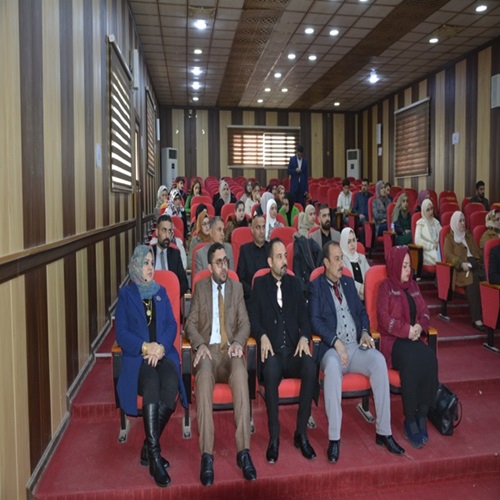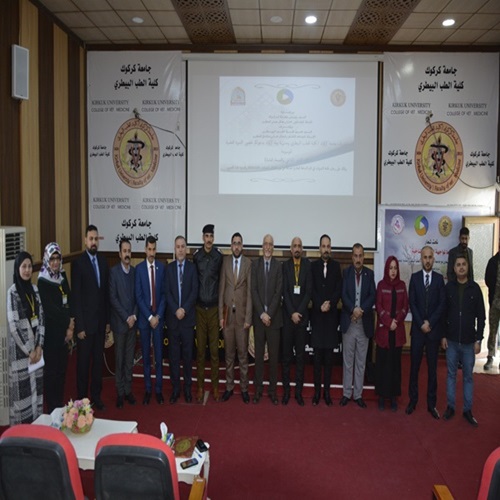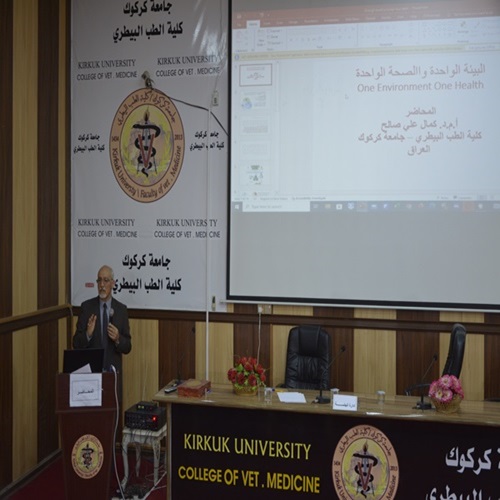On Tuesday, 2/6/2024, under the slogan of the effects of climate change on public health, and under the patronage of the President of the University of Kirkuk, Professor Dr. Imran Jamal Hassan, and under the supervision of the Dean of the College of Veterinary Medicine, Assistant Professor Dr. Kamal Ali Saleh, the College of Veterinary Medicine held its scientific symposium within the seminar hall of the college. The fourteenth session was entitled (The Impact of Change on Animal Health). The symposium was attended by the President of the University of Kirkuk, Professor Dr. Imran Jamal Hassan, the Dean of the College of Medicine, Dr. Fakhr al-Din Najm Nasser, the college’s teachers, representatives of government departments and organizations, and media professionals.
The symposium included several topics: The first topic is a lecture given by Assistant Professor Dr. Kamal Ali Saleh entitled (One Environment, One Health), in which he explained that there is an inseparable interrelation between humans, animals, and the environment, and that most of the existing human infectious diseases are diseases of zoonotic origin that are transmitted from animals to humans through direct contact or from eating. Animal products such as meat, milk, or their derivatives. The second lecture was given by Dr. Muhammad Khader Muhammad from the Kirkuk Environment Directorate, entitled (Climate Change and Animal Health). While the third lecture, delivered by M.M. Louay Juma Jihad, included the impact of climate change on transmissible and common diseases. Then, a panel discussion was held between the attendees and the committee formed by lecturers who concluded recommendations that address most of the health problems resulting from climate changes that affect animal health, indicating The human health and economic consequences of the death of a high percentage of animals faced by communities in developing countries due to bad weather conditions. The committee recommended joint work between the state’s academic and service health and environmental institutions, and cooperation and coordination together to bridge the gaps and missing links between all governmental and non-governmental sectors and organizations concerned with environmental affairs, to identify the health and economic threats that threaten the security and safety of society, and to try to search for solutions and ways to provide the necessary protection for human health from By protecting it from common diseases and providing healthy food from disease-free animal facilities. At the end, certificates of participation were distributed to lecturers, representatives of departments concerned with the environment and health, unions, and the media.




 University of Kirkuk - College of Veterinary Medicine
University of Kirkuk - College of Veterinary Medicine  Arabic
Arabic  English
English 